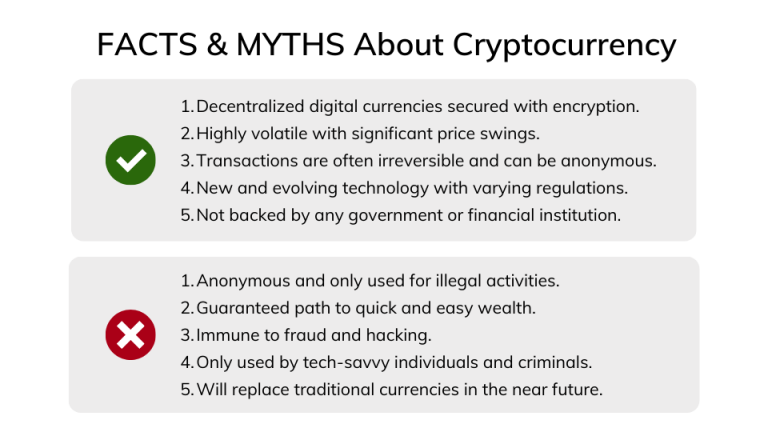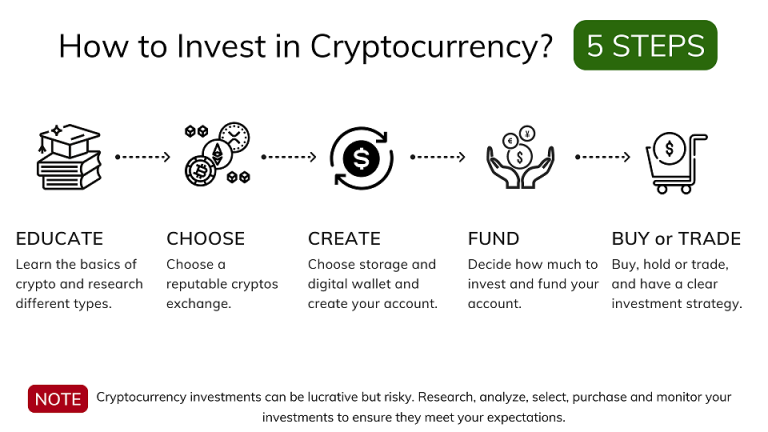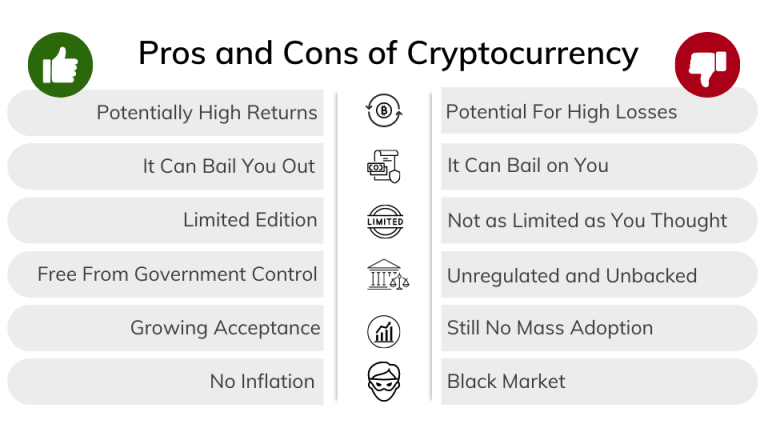Are you interested in the world of cryptocurrency and how it is regulated in different countries? In this blog article, we will delve into the crypto regulations in Bahrain, exploring the legal landscape for digital currency in this Middle Eastern nation. Gain a deeper understanding of the rules and regulations surrounding cryptocurrency in Bahrain and how it impacts the local market.

Venture into the wild, wild world of digital currencies, and you’ll quickly find a constant companion – crypto regulations. Far from being just red tape, these rules of the road, so to speak, are vital to navigating the rollercoaster world of cryptocurrencies. They are the legal blueprint that guides the use, trade, and management of these digital assets. Plus, they offer a safety net to investors and users, ensuring transactions are as transparent as a freshly cleaned window and as secure as a vault. Of course, these rules aren’t a one-size-fits-all deal – they differ as much as the local cuisine from one country to another.
Bahrain isn’t just known for its love of traditional Arabic coffee and stunning architecture. It’s also leading the charge in financial innovation, making crypto regulations as essential as sunscreen in the summer. As a central financial hub in the Middle East, Bahrain is like the kid on the block with the coolest new toy – it’s right at the heart of the fintech revolution.
Crypto regulations in Bahrain aren’t just for show. They’re multi-purpose, like a Swiss Army knife. They:
Bahrain’s path towards setting up a rock-solid framework for digital currencies has been more progressive than a tech startup’s growth chart. It all kicked off in 2014 when the Central Bank of Bahrain (CBB) issued a warning about the risks tied to cryptocurrencies, akin to a worried parent’s first time letting their kid drive.
Jump to 2017, and the CBB had swapped caution for courage. They rolled out a Regulatory Sandbox, a playground for fintech firms to test and develop trailblazing solutions, including cryptocurrency-based ones. This was a game-changer in Bahrain’s regulatory landscape, showing that they were ready to roll out the red carpet for digital currencies.
By 2019, the CBB had released comprehensive crypto-asset regulations, beating many of their regional peers to the punch. These rules covered everything from licensing and governance to risk management and AML/CFT measures, laying a sturdy foundation for Bahrain’s crypto industry.
Bahrain’s approach to crypto regulation has come a long way. It’s like watching a caterpillar transform into a butterfly, going from careful observation to active involvement. It’s a testament to their dedication to embracing digital evolution, all while keeping their financial system as stable as a table with four equally lengthed legs.
Being the financial wizard of the country, the Central Bank of Bahrain (CBB) has a meaty role in designing the legal framework for digital currencies in Bahrain. Unlike the majority of financial regulators who are still skeptical about cryptocurrencies, the CBB has warmly welcomed the advent of cryptocurrencies and blockchain technology. It’s like they’re saying, “Bring it on!”
They’ve gone ahead and developed a well-rounded regulation structure for the crypto market, providing a clear roadmap for digital currency businesses. Think of it as a rulebook for the crypto playground. It covers everything from licensing, governance, minimum capital, to cyber security. No stone left unturned, right? This proactive stance has helped Bahrain nurture a favorable environment for cryptocurrency trading, while keeping a keen eye on investor protection and market integrity.
Imagine a group of architects meticulously designing a blueprint. That’s exactly what several legislations are doing to shape Bahrain’s cryptocurrency landscape. The CBB Rulebook Volume 6 offers a regulatory sandbox for fintech firms. It’s like a nursery for these firms to play, learn, and develop innovative digital solutions. On the other hand, Volume 7 of the rulebook lays out the regulatory structure for crypto-asset services, clearly stating the legal duties of crypto businesses.
One legislation that stands out is the Decree No. 78 of 2018. It’s like the golden ticket that permits the CBB to license and regulate crypto-asset services. This law legitimizes crypto-assets as a viable investment option, integrating them into Bahrain’s financial framework. In addition, the CBB’s Anti-Money Laundering and Combating the Financing of Terrorism (AML/CFT) rules now include crypto-asset services, to keep any potential misuse of cryptocurrencies at bay.
Compared to the rest of the world, Bahrain’s crypto regulations are like a student who’s completed his homework before time. While many countries are still wrestling with the dilemma of regulating cryptocurrencies, Bahrain has boldly stepped forward. It’s like Bahrain’s saying, “Why walk when you can run?”
The CBB’s regulations are in sync with the guidelines of international bodies like the Financial Action Task Force (FATF). These rules encompass areas such as customer due diligence, risk management, and reporting of suspicious transactions, aligning with global best practices.
Plus, Bahrain’s regulatory sandbox permits fintech companies to toy around with crypto-related services under the watchful eyes of the CBB. This concept is still a novelty in many jurisdictions, making Bahrain a magnet for fintech startups and crypto businesses. It’s like Bahrain is setting a trend for others to follow. No pressure, other countries!

Picture this: Bahrain’s financial sector, a tranquil ocean, suddenly hit by the tsunami of digital currencies. Thanks to a solid regulatory framework, the impact of cryptocurrencies has been nothing short of transformative, bringing a fresh wave of dynamism to the nation’s financial ecosystem. With the birth of Bitcoin and its digital siblings, Bahrain is surfing the wave towards digital transactions, gradually bidding farewell to the traditional banking systems. The result? A competitive and innovative financial arena, pushing institutions to evolve and adapt to the digital era. Plus, cryptocurrencies have become the magnet, drawing international fintech firms to Bahrain, and diversifying the nation’s financial sector. Now that’s a wave worth catching!
Now, let’s talk about the rollercoaster ride that is cryptocurrency regulations in Bahrain. On the upswing, clear and comprehensive rules have cultivated a landscape of trust and stability, acting as the honey pot for investors and businesses dealing in digital currencies. This has sparked economic activity and crowned Bahrain as a leading fintech hub in the Middle East. But, hold on to your hats because here comes the drop. The same regulatory framework, designed to ward off fraud and money laundering, could feel like a straitjacket for some, potentially choking innovation and growth. Plus, the cost and time commitment of compliance might scare off the small fish, deterring small businesses and start-ups from taking the crypto plunge.
Imagine if Charlie Bucket’s golden ticket wasn’t to Willy Wonka’s Chocolate Factory, but to a digital economy. That’s the ticket cryptocurrencies hold for Bahrain. With the country’s Economic Vision 2030 identifying ICT as the key to unlocking economic growth, digital currencies fit the bill perfectly. With its robust cryptocurrency regulations, Bahrain is paving the yellow brick road towards digital transformation and financial inclusion. And, it’s not just about moving money around. Digital currencies can turbocharge transactions, rev up the efficiency of financial services, and potentially lower costs for businesses and consumers. Bahrain isn’t just inviting international cryptocurrency businesses to the party, it’s hoping they’ll boost its fintech sector, create jobs, and give it an edge in the global market. Plus, the government’s proactive approach to cryptocurrency regulation is a testament to Bahrain’s readiness to embrace the digital future.
So, the impact of crypto regulations on Bahrain’s economy isn’t a simple story of cause and effect. It’s a tale of transformation, opportunities, challenges, and a nation’s quest for a digital economy. And like any good story, the ending will be shaped by how well Bahrain manages the plot twists and turns along the way.

In the sun-drenched Kingdom of Bahrain, navigating the labyrinth of cryptocurrency regulations begins with securing a license from the Central Bank of Bahrain (CBB). And it’s no easy feat! The CBB demands companies to meet a slew of criteria that could make even a seasoned Wall Street banker break a sweat.
Cryptocurrency businesses need to showcase a sound business plan, robust security measures, and meet minimum capital requirements. And that’s just for starters. They must also prove their mettle in understanding and complying with Anti-Money Laundering (AML) and Counter-Terrorism Financing (CTF) laws. No pressure, right?
But wait, there’s more! The CBB expects companies to maintain comprehensive records of all transactions, ready for inspection at a moment’s notice. Procedures for customer due diligence are a must, including verifying the identity of customers and keeping an eagle eye on transactions for any whiff of suspicious activity.
The Central Bank of Bahrain doesn’t just lay down the law; it ensures it’s followed to the letter. The CBB has stringent enforcement mechanisms in place, such as routine inspections, audits, and even the power to revoke licenses. Fail to play by the rules, and businesses could face hefty financial penalties. And the higher the severity and frequency of violations, the steeper the fines. Ouch!
For those who think they can outsmart the system, think again. For serious breaches, the CBB can flex its muscles and impose even stricter measures like suspending or revoking a company’s license, barring individuals from working in the financial sector, or even calling in the Public Prosecutor for a criminal investigation. All these measures ensure Bahrain’s digital currency market remains secure, protecting consumers and the wider financial system from the inherent risks of cryptocurrency.
The effectiveness of Bahrain’s compliance and enforcement mechanisms is evident in some recent high-profile cases. Let’s take a look at two of them.
First up, we have Rain, a cryptocurrency exchange in Bahrain that, in 2019, became the first in the Middle East to secure a regulatory license from the CBB. It was no walk in the park; it took a grueling two-year regulatory sandbox process for Rain to prove its ability to meet the CBB’s stringent compliance requirements.
On the flip side, the CBB isn’t shy about cracking the whip when needed. In 2018, it took action against a company offering cryptocurrency investment services without a license. The company was fined and ordered to cease operations, demonstrating the CBB’s commitment to enforcing regulations and maintaining the integrity of Bahrain’s cryptocurrency market.
These cases highlight the opportunities and challenges for cryptocurrency businesses in Bahrain. The rigorous regulatory framework can provide a solid foundation for businesses that can meet its requirements. However, businesses that fail to comply with these regulations can face severe penalties. The bottom line? Understanding and adhering to Bahrain’s crypto regulations isn’t just important; it’s essential.

Bahrain’s crypto regulatory landscape is like a chameleon, ready to change colors at any moment. There’s no doubt that we’re heading towards a period of increased regulation. The Central Bank of Bahrain (CBB) has been like a protective mother bear, ensuring the safety of its investors and market stability. Expect to see stricter rules, similar to a teacher’s rulebook on the first day of school, with possible tougher licensing requirements for cryptocurrency businesses and more transparency in crypto transactions.
And let’s not forget the new kids on the block – Decentralized Finance (DeFi) and Non-Fungible Tokens (NFTs). As their popularity grows faster than a viral TikTok video, expect regulations to catch up and cover these areas.
Just like how fashion trends influence our wardrobe choices, global trends in crypto regulation are having a major impact on Bahrain. As more countries roll out comprehensive crypto regulatory frameworks, Bahrain might feel the pressure to keep up with the Joneses and align its rules with international standards. This could boost Bahrain’s reputation as a safe haven for crypto investments, much like how a teenager’s reputation improves when they start hanging out with the cool kids.
And let’s not forget the rising stars of the crypto world – Central Bank Digital Currencies (CBDCs). As countries like China and Sweden start experimenting with CBDCs, Bahrain might consider jumping on the bandwagon and developing its own digital currency. This could bring new regulations for CBDC issuance and operation.
But it’s not all smooth sailing. The cross-border nature of cryptocurrencies, much like trying to control a flock of birds crossing borders, makes enforcing national regulations tricky. Bahrain, like many other countries, may need to tackle problems such as crypto tax evasion and money laundering.
Bahrain isn’t just sitting on the sidelines. It’s actively taking steps to stay in the crypto game. The CBB, for instance, is keeping a keen eye on global crypto trends and tweaking its rules to stay current. This ensures Bahrain’s regulatory framework stays as up-to-date as your phone’s software.
And let’s not forget the CBB’s Regulatory Sandbox – a playground for fintech startups dealing with cryptocurrencies. This allows the regulator to understand the implications of new technologies and adjust regulations effectively.
But Bahrain isn’t just focusing on the fun stuff. It’s also bolstering its defenses against potential risks associated with cryptocurrencies. The CBB is ramping up its surveillance capabilities to detect any shady crypto activities and ensure everyone plays by the rules.
And of course, Bahrain is making sure its citizens are in the know. It’s promoting awareness and understanding of cryptocurrencies, much like a public service announcement, ensuring investors are well-informed and understand the risks.
All in all, Bahrain’s crypto regulatory landscape is set to evolve with the times. Expect stricter rules, alignment with international standards, and adaptation to new technologies. But Bahrain isn’t just adapting – it’s also leveraging its regulatory framework to attract crypto businesses and investments, with a vision of becoming the top dog in the regional fintech hub.

